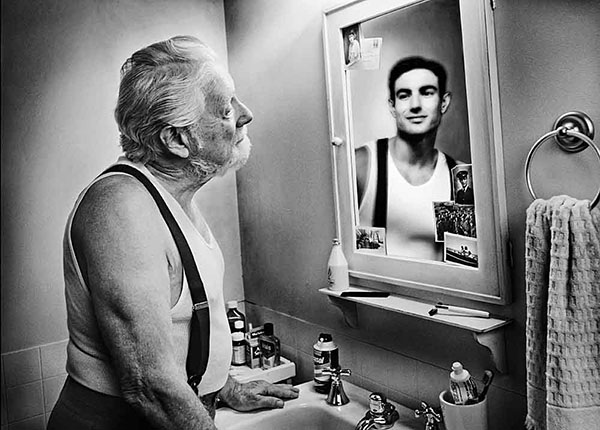 Repost March 2014,
Repost March 2014,  revised
revised  Friday, March 4, 2016 at 09:16AM
Friday, March 4, 2016 at 09:16AM  My friend read Shakespeare’s Hamlet when he was an 18 year-old high school senior. Over the decades he has returned to the story every ten years: at 28, 38, 48, and yes, now at 58. He reports to me that the play is radically different with each reading. The words have not changed, the reader has.
My friend read Shakespeare’s Hamlet when he was an 18 year-old high school senior. Over the decades he has returned to the story every ten years: at 28, 38, 48, and yes, now at 58. He reports to me that the play is radically different with each reading. The words have not changed, the reader has.
If this fresh experience is true for one who reads, I began to wonder about the one who writes. What we write in our youth may bear no relation to what we think and write in our old age. Which brings me to David, who wrote so many of the Psalms. David, the shepherd boy who became the prophesied hope of Israel, who was then chased by a madman king, then himself became the great king of God’s people. As David aged he became the husband of several wives, the father of many children, and finally an old king—a man with scores to settle. David was, in effect, more than one man: his years and experiences shaped him even as God’s favor and anointing pushed him forward.
When I read David’s psalms I’m left to decide which David wrote what Psalm. Sometimes the introduction of a Psalm tells us plainly, as in Psalm 18 (he was running for his life). But most often we are simply given the words, “A Psalm of David.” We are left to imagine when each Psalm was written and under what circumstances.
Here is an exercise in spiritual imagination: take David’s most famous Psalm—number 23—and imagine it from the mouth of young David, the shepherd boy.
Then read it again, this time hearing the words of a young man on the run for his life against the murderous rage of the insane King Saul.
Or yet again as the newly crowned king of all Israel.
Or (finally) yet again as the dying king who has witnessed the death of his own children and the infighting among those who want to succeed him to the throne.
Or, in a darker vein, take any of the Psalms where David cries out for God’s justice and rescue, or even for God to take vengeance on David’s enemies: the kind of Psalms C.S. Lewis says could only be written by “ferocious, self-pitying, barbaric men.” (As just one example take a quick look at Psalm 28). As I read these Psalms I imagine a very young David, someone unaware of the events he will face in the decades to come. In the passing years David will discover he himself is capable of lust, adultery, intrigue, murder, and pride. It's a cautionary tale of self-righteousness. Or perhaps not. Perhaps it is a comforting notion that even someone “after God’s own heart” can feel and think such thoughts. Or more simply still, that David was human, no different from you or me. We do not know what the years will bring, or what the events of life will surface in our own feelings and actions.
This exercise can lead us to greater insight, and what’s more, it can lead us to greater humility. The kind of grace which could seal our lips when we are tempted to criticize others because we are so convinced of the rightness of our cause, never realizing that even when we are on the “right side” of an issue, God looks at our hearts and actions far more than our opinions.
Will we be like young David, who rails and demands divine action (or worse, human action) or will we become the kind of person who enters each day with humility, recognizing the fact that our future holds experiences—and attitudes—for which we are not yet prepared?